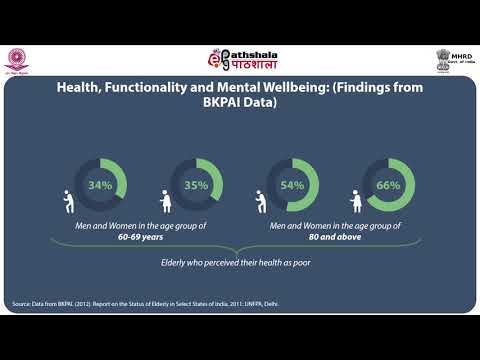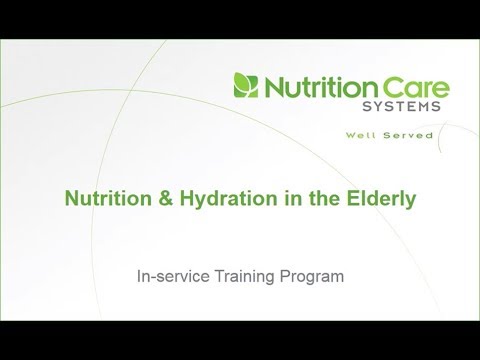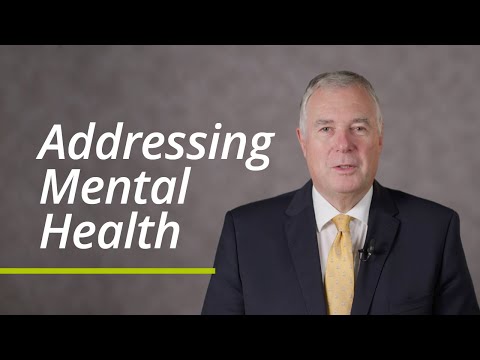Oral Health Problems in the Elderly: What You Need to Know
Contents [show]
As we age, our risk for developing certain Oral Health problems increases. This is why it’s important to be aware of the potential oral health problems that can occur in older adults. By knowing the signs and symptoms to look out for, you can help keep your elderly loved ones healthy and smiling.
Checkout this video:
Introduction
As we age, our risk for developing certain health problems increases. This is also true for oral health problems According to the National Institute of Dental and Craniofacial Research, about one in four Americans over the age of 65 have some form of periodontal (gum) disease. And, according to the Centers for Disease Control and Prevention (CDC), nearly one in five adults over the age of 65 have untreated cavities.
Oral health problems are not just a nuisance; they can lead to other serious health problems. For example, gum disease has been linked to an increased risk for Heart Disease stroke, and diabetes. People with untreated cavities are more likely to experience pain and difficulty eating and speaking. Untreated oral health problems can also lead to social isolation and depression.
There are several things that can increase our risk for developing Oral Health problems as we age. These include:
– Poor oral hygiene: This means not brushing and flossing regularly or not taking care of dental appliances such as dentures properly.
– Poor nutrition: A diet lacking in certain nutrients can contribute to cavities and gum disease.
– Tobacco use: Smoking increases the risk for developing gum disease, tooth loss, and mouth cancer.
– Dry mouth: This is a decrease in saliva production which can lead to an increase in cavities as well as fungal infections such as thrush. Dry mouth is a side effect of many medications used by older adults.
– Illnesses: Some illnesses such as diabetes or HIV/AIDS can increase the risk for developing oral health problems.
Oral health problems are common among older adults, but they are not inevitable. There are things that we can do to reduce our risk and keep our mouths healthy as we age. These include:
– Brushing twice a day with a toothpaste that contains fluoride
– Flossing every day
– Eating a diet rich in fruits, vegetables, whole grains, and low-fat dairy products
– Quitting tobacco use
– Seeing a dentist regularly for checkups and cleanings
What are the most common oral health problems in the elderly?
There are a number of oral health problems that are common in the elderly. These include tooth decay, gum disease, dry mouth, and mouth sores.
Tooth decay is one of the most common problems, and it can lead to cavities and tooth loss. Gum disease is another common problem, and it can cause inflammation, bleeding, and pain. Dry mouth can be a problem for seniors, as it can lead to an increased risk of cavities and infection. Mouth sores are also common in the elderly, and they can be painful and debilitating.
It is important for seniors to see their dentist regularly so that these problems can be detected early and treated appropriately. Early treatment can often prevent more serious problems from developing.
What are the risk factors for oral health problems in the elderly?
There are a number of risk factors for oral health problems in the elderly, including:
– Poor dental hygiene: Poor dental hygiene is a major risk factor for oral health problems in the elderly. This is because plaque and tartar can build up on teeth, leading to tooth decay and gum disease.
– Dry mouth: Dry mouth is a condition that can occur as we age, and it can lead to a number of oral health problems, including tooth decay and infection.
– Ill-fitting dentures: Ill-fitting dentures can cause a number of oral health problems in the elderly, including soreness, infection, and ulcers.
– Smoking: Smoking is a major risk factor for oral health problems in the elderly. This is because smoking can cause gum disease and tooth decay.
How can you prevent oral health problems in the elderly?
Preventing oral health problems in the elderly starts with good oral hygiene. Brushing twice a day with a fluoride toothpaste and flossing once a day can help remove plaque, a sticky film of bacteria that forms on teeth. Plaque can harden into tartar, which can cause gum disease, tooth decay, and bad breath. Regular dental checkups and cleanings are also important.
How can you treat oral health problems in the elderly?
What are oral health problems in the elderly?
Oral health problems in the elderly are those that result from changes in the mouth associated with aging. These changes can make it more difficult to keep the mouth clean and free of disease-causing bacteria.
What are some common oral health problems in the elderly?
Some common oral health problems in the elderly include gum disease, tooth decay, dry mouth, and oral cancer. Gum disease is an infection of the gums that can lead to tooth loss. Tooth decay is a result of plaque buildup on teeth. Dry mouth is a condition where there is not enough saliva in the mouth to keep it moist. Oral cancer is a cancer that starts in the lips, tongue, or other tissues in the mouth.
How can you treat oral health problems in the elderly?
Most oral health problems in the elderly can be treated with regular dental visits, good oral hygiene, and a healthy diet. However, some conditions may require more intensive treatment, such as surgery or radiation therapy.
What are the complications of oral health problems in the elderly?
While good oral health is important at any age, it becomes increasingly vital as we age. Unfortunately, many seniors suffer from a variety of oral health problems that can lead to serious complications. These complications can range from tooth loss and bad breath to trouble eating and speaking. In some cases, they can even lead to life-threatening infections.
Here are some of the most common oral health problems in the elderly and the complications they can cause:
Tooth loss: losing one or more teeth can make it difficult to eat, speak, and smile. It can also lead to gum disease and infection.
Gum disease: this condition causes inflamed and bleeding gums. It can lead to tooth loss, bad breath, and infections.
Dry mouth: this condition can cause difficulty eating and speaking, as well as an increased risk of cavities and gum disease.
Oral cancer: this potentially deadly disease is most common in people over the age of 50. It can cause difficulty eating, speaking, and swallowing. If you notice any unusual lumps or changes in your mouth, see a doctor right away. Oral cancer is highly treatable if caught early.
If you are elderly or have elderly loved ones, it’s important to be aware of these oral health problems and their potential complications. Be sure to see a dentist regularly for checkups and cleanings, and brush and floss your teeth daily. If you have any concerns about your oral health, don’t hesitate to talk to your dentist or doctor.
How can you manage oral health problems in the elderly?
Oral health problems are common in the elderly population. Approximately one in five seniors has an oral health problem that requires treatment, and this number is expected to rise as the population ages.
There are several things that can contribute to oral health problems in the elderly, including:
– Reduced saliva production: This can lead to a decrease in the ability to break down food, which can make it more difficult to chew and swallow. It can also lead to an increase in plaque and bacteria build-up, which can lead to tooth decay and gum disease.
– Dry mouth: This is often a side effect of medication use. It can also be caused by certain medical conditions, such as Sjogren’s syndrome or diabetes. Dry mouth can cause difficulty with chewing and swallowing, as well as an increase in plaque and bacteria build-up.
– Dentures: Ill-fitting dentures can cause discomfort and make it difficult to eat certain foods. They can also rub against the gums, causing irritation or even ulcerations. Improper cleaning of dentures can also lead to an increase in plaque and bacteria build-up.
There are several things that you can do to manage oral health problems in the elderly:
– Encourage adequate saliva production by having them chew sugarless gum or drink sugarless beverages throughout the day.
– Treat underlying medical conditions that may be contributing to dry mouth or reduced saliva production.
– Fit dentures properly and make sure they are cleaned regularly. Dentures should be removed at night so that the gums can rest.
– Schedule regular dental checkups and cleanings so that any problems can be detected and treated early on.
What are the long-term effects of oral health problems in the elderly?
Oral health problems are common in the elderly population, and their prevalence is expected to increase as the population ages. The most common oral health problems in the elderly include tooth decay, periodontal disease, and xerostomia (dry mouth). These conditions can lead to a number of negative outcomes, such as pain, infections, difficulty eating and speaking, and an increased risk for falls.
Tooth decay is caused by a combination of factors, including poor oral hygiene, a diet high in sugar, and reduced saliva production. Periodontal disease is an infection of the gums that can lead to tooth loss if left untreated. Xerostomia is a condition that results in a decrease in saliva production, which can lead to an increase in the growth of bacteria in the mouth and an increased risk for cavities.
The best way to prevent oral health problems in the elderly is to practice good oral hygiene habits and to see a dentist regularly. Older adults should brush their teeth twice a day with fluoride toothpaste, floss daily, and see a dentist at least once a year for a professional cleaning and examination.
Conclusion
Oral health problems are common in the elderly population, and they can have a significant impact on quality of life. It is important to be aware of the signs and symptoms of common oral health problems, and to seek treatment from a qualified dentist or other healthcare provider if you or a loved one are experiencing any of these problems. By taking good care of your teeth and gums, you can help to prevent many oral health problems from developing, or at least help to keep them from getting worse.







